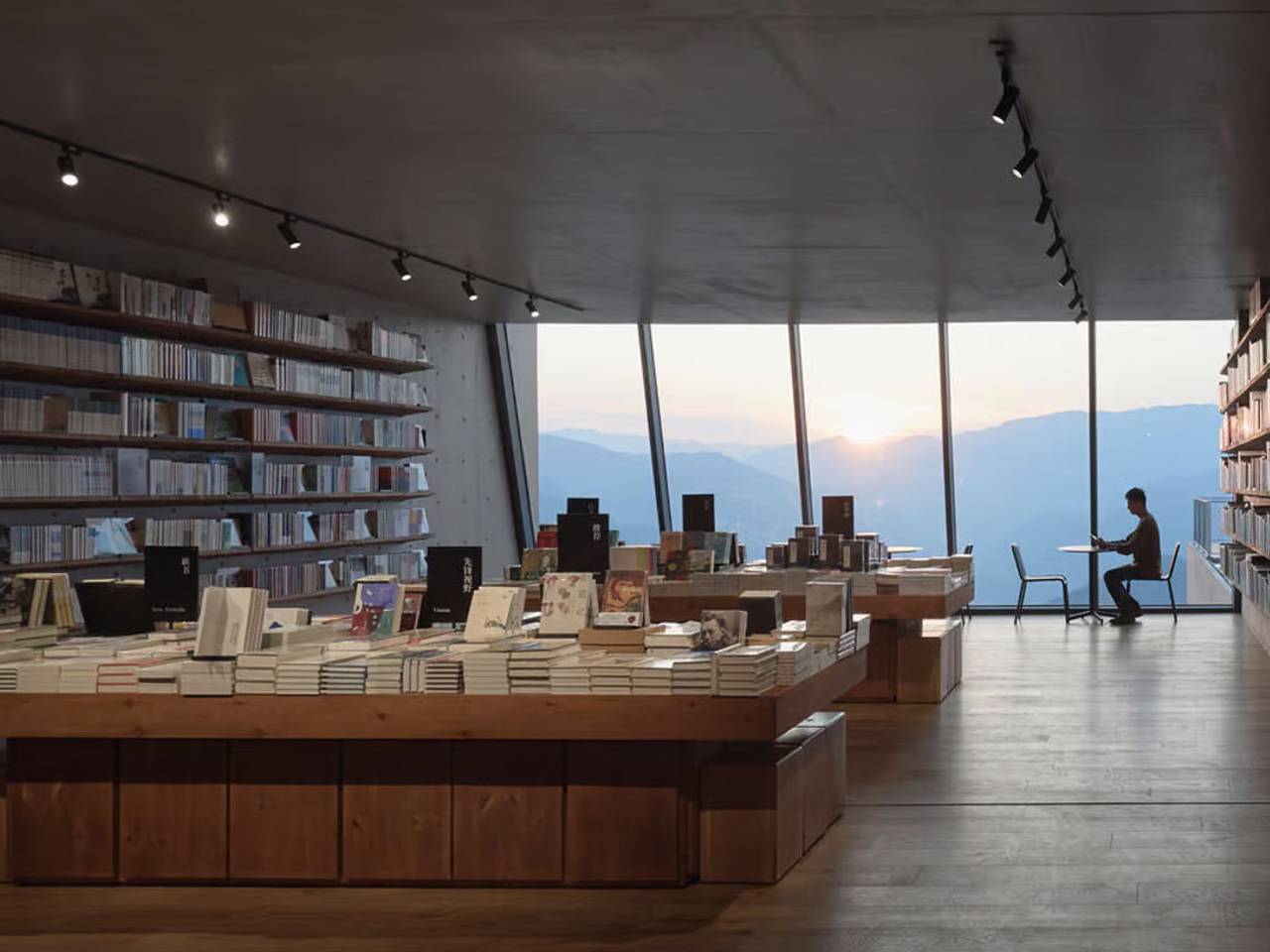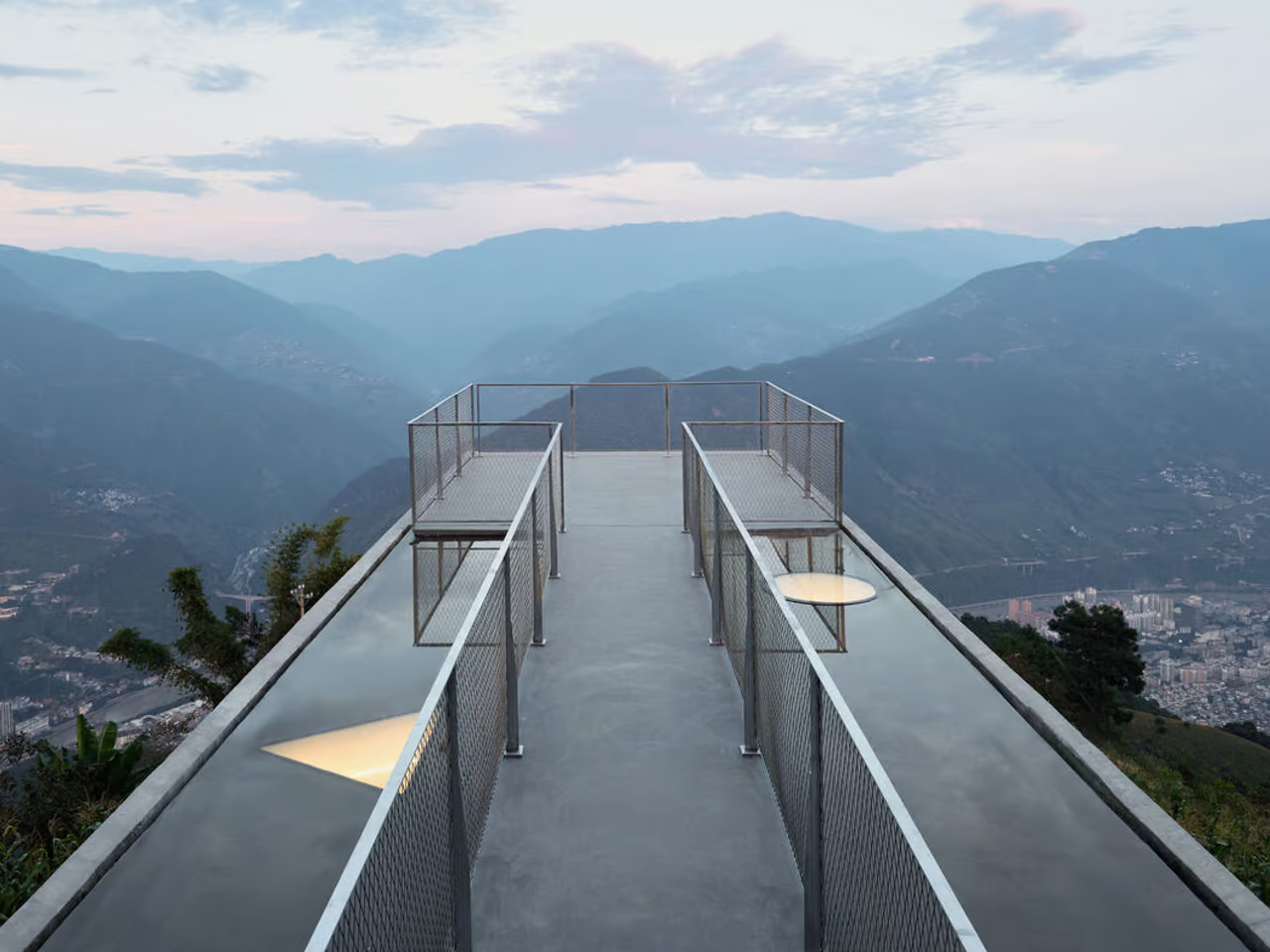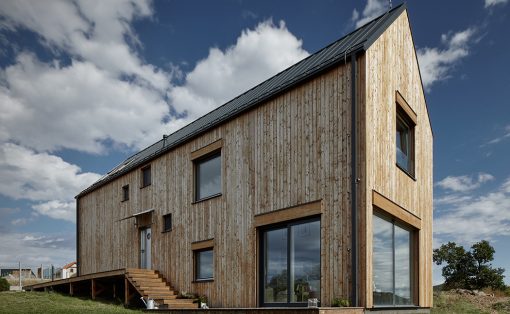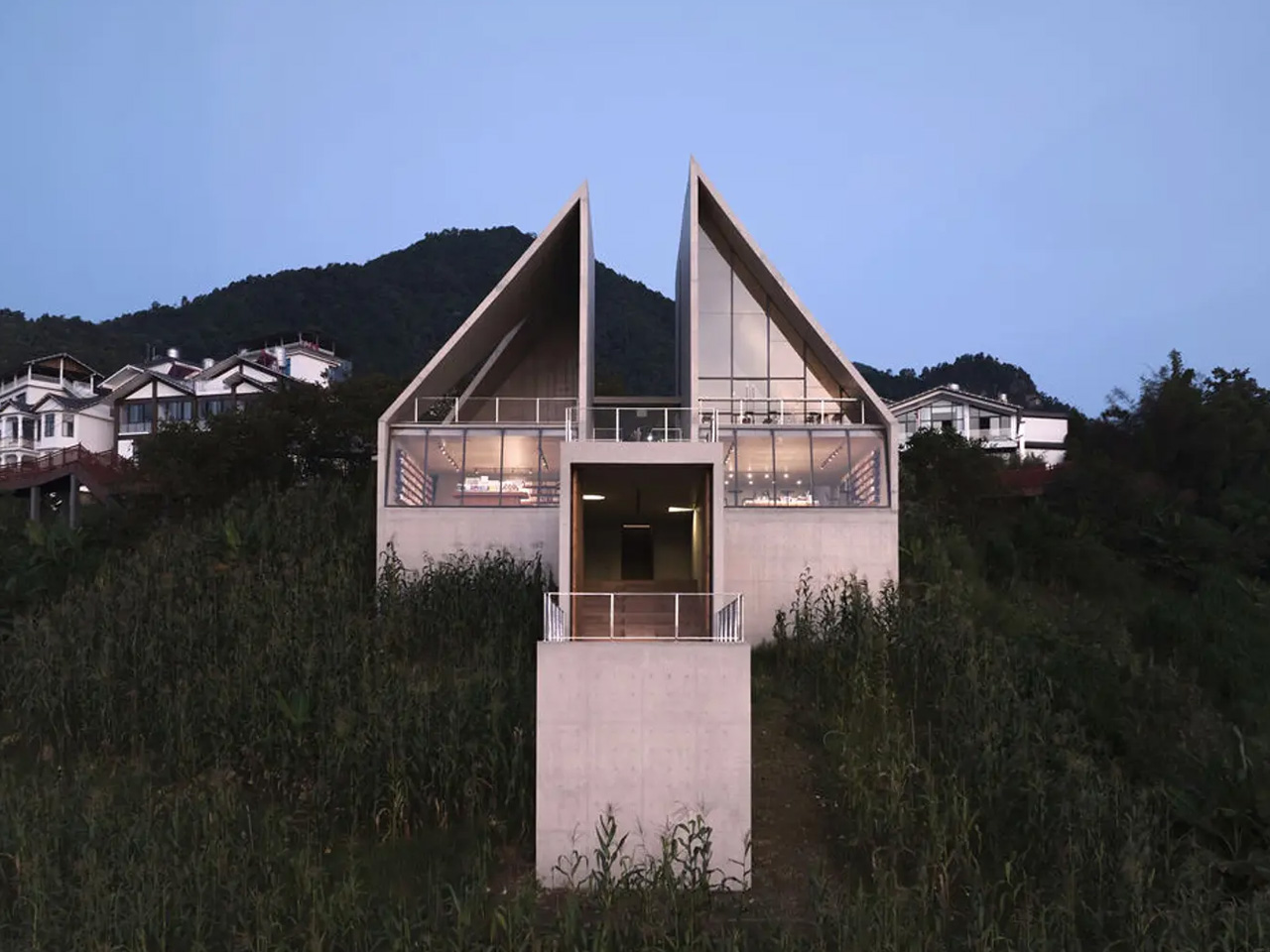
Tucked away in Yangpo Village on top of the Gaoligong Mountains is a lovely bookstore called the Nujiang Grand Canyon Bookstore. The store beautifully merges contemporary architecture with the surrounding landscape – both natural and cultural. The bookstore is blessed with stunning views of the Nujiang River and the nearby peaks. This brilliant structure combines modern design with local heritage gracefully and respectfully.
Designer: TAO (Trace Architecture Office)
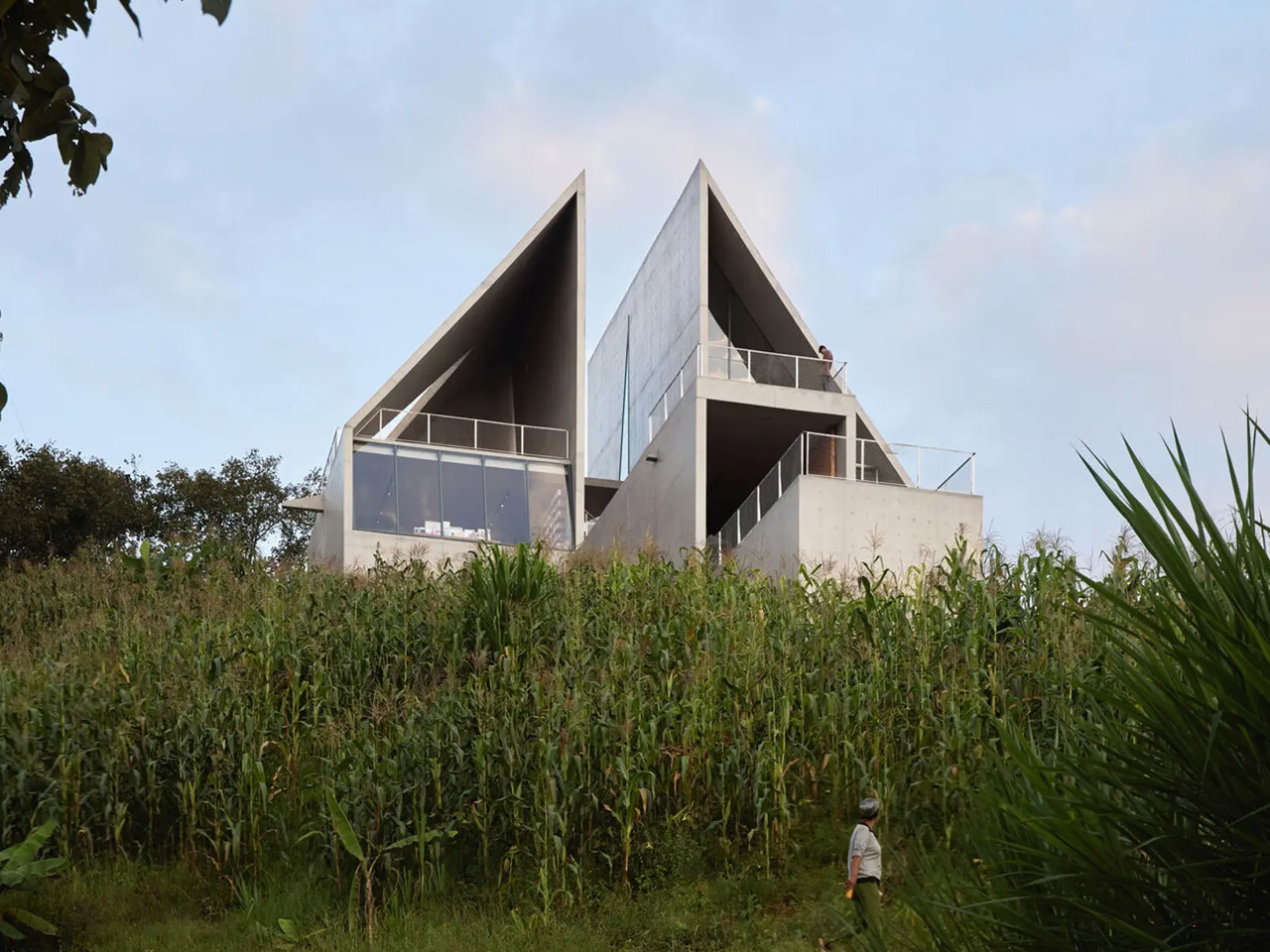
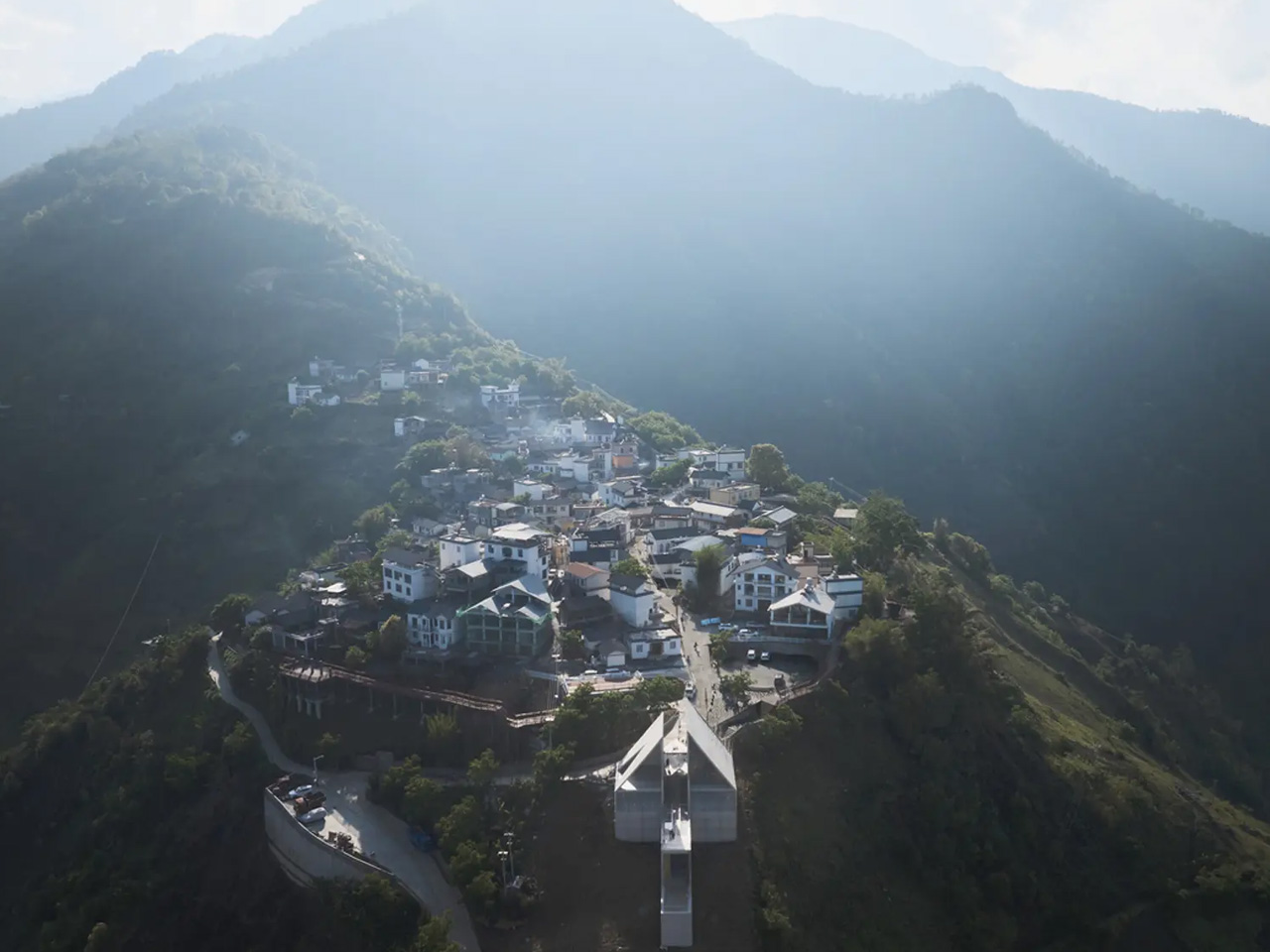
The bookstore is constructed on a mountainous site, and it extends outwards like a sharp arrow. This represents the Lisu people’s connection to crossbows. The structure seamlessly adapts to the slope, it beautifully integrates with the landscape, while forming a subtle sense of elevation. Reinforced concrete and locally sourced materials were used to build the bookstore, improving its durability, and reducing any adverse effects on the environment. The walls include openings that provide framed views of the canyon, allowing the interior and exterior to co-exist harmoniously.
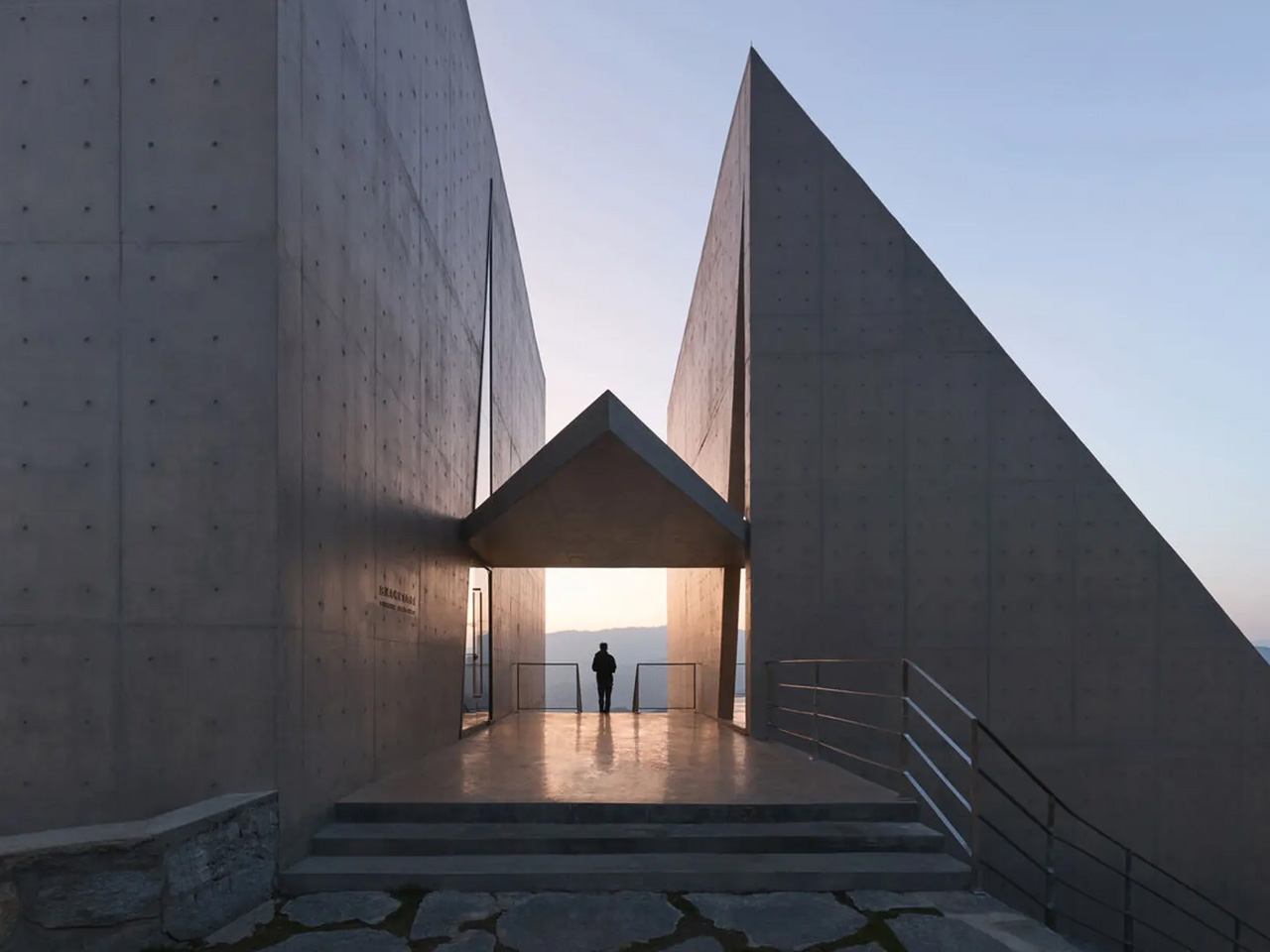
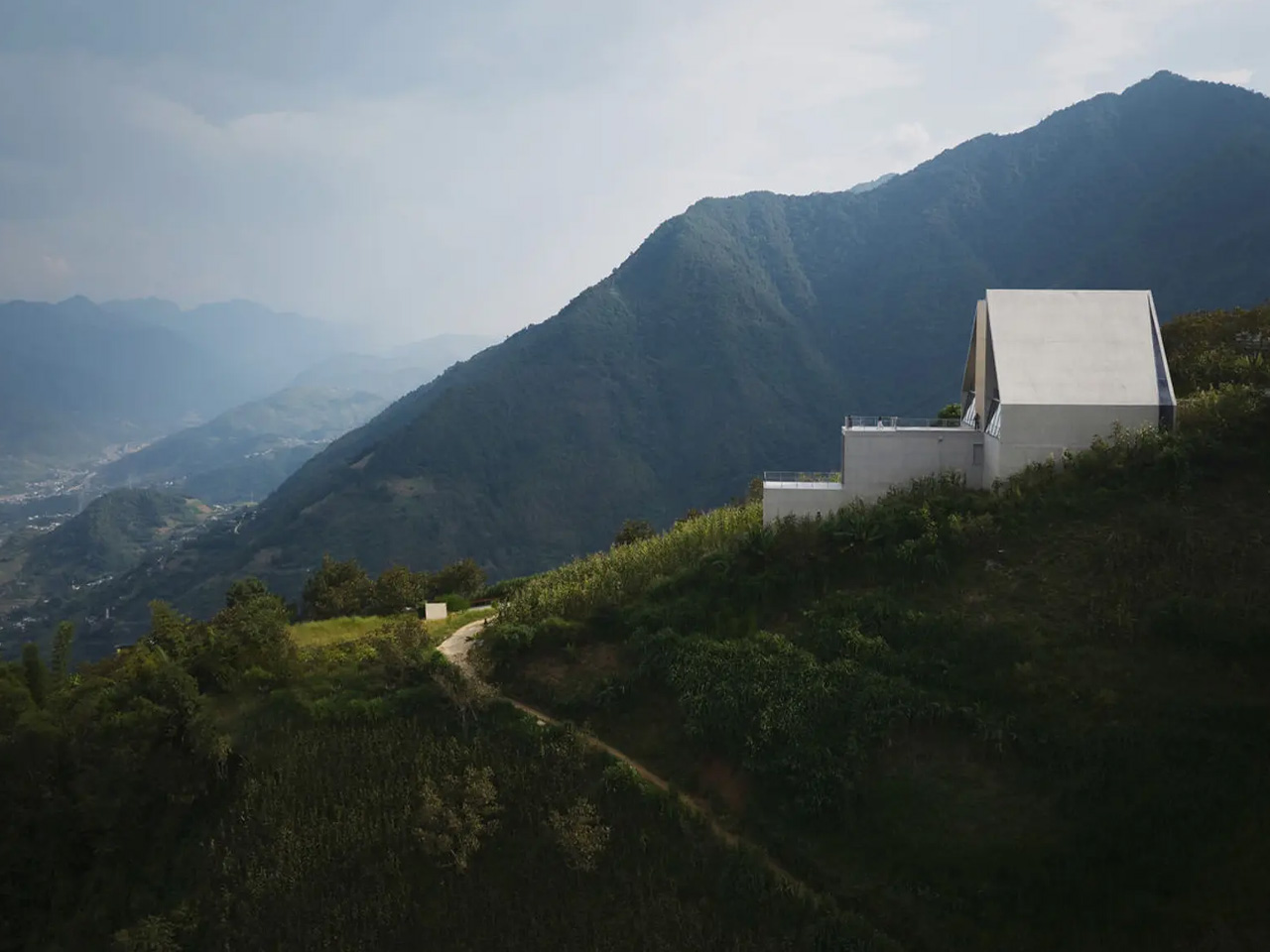
The inside of the bookstore contains three levels. Each floor has a purpose and goal. The top story includes a café with a sloped roof, creating a free-flowing and open ambiance. The middle floor serves as the bookstore, equipped with concrete walls, while the lower level accommodates an amphitheater featuring skylights. The theater is equipped with camphor-wood doors which are opened once the day, allowing the surrounding landscape to connect with the theater.
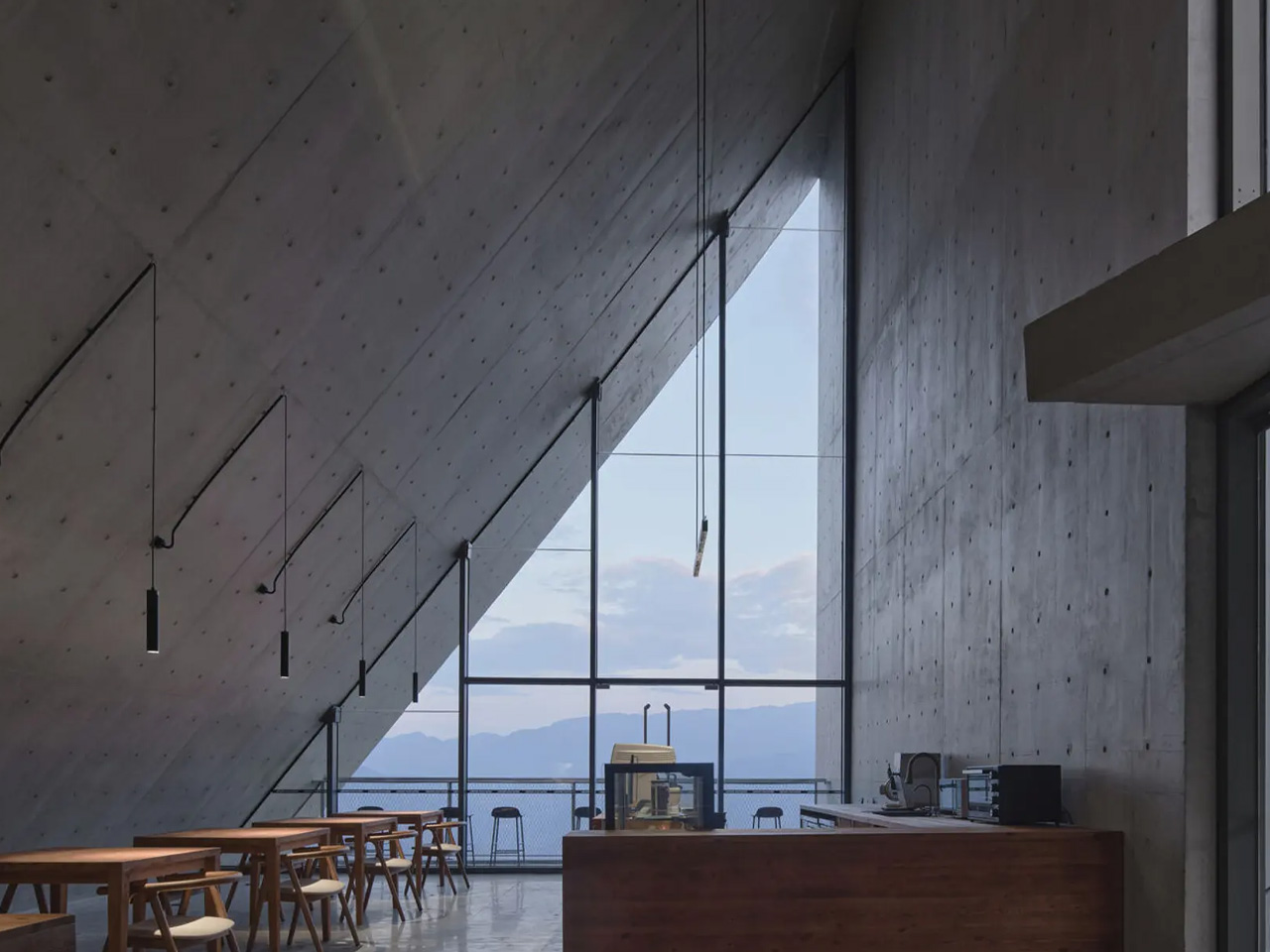
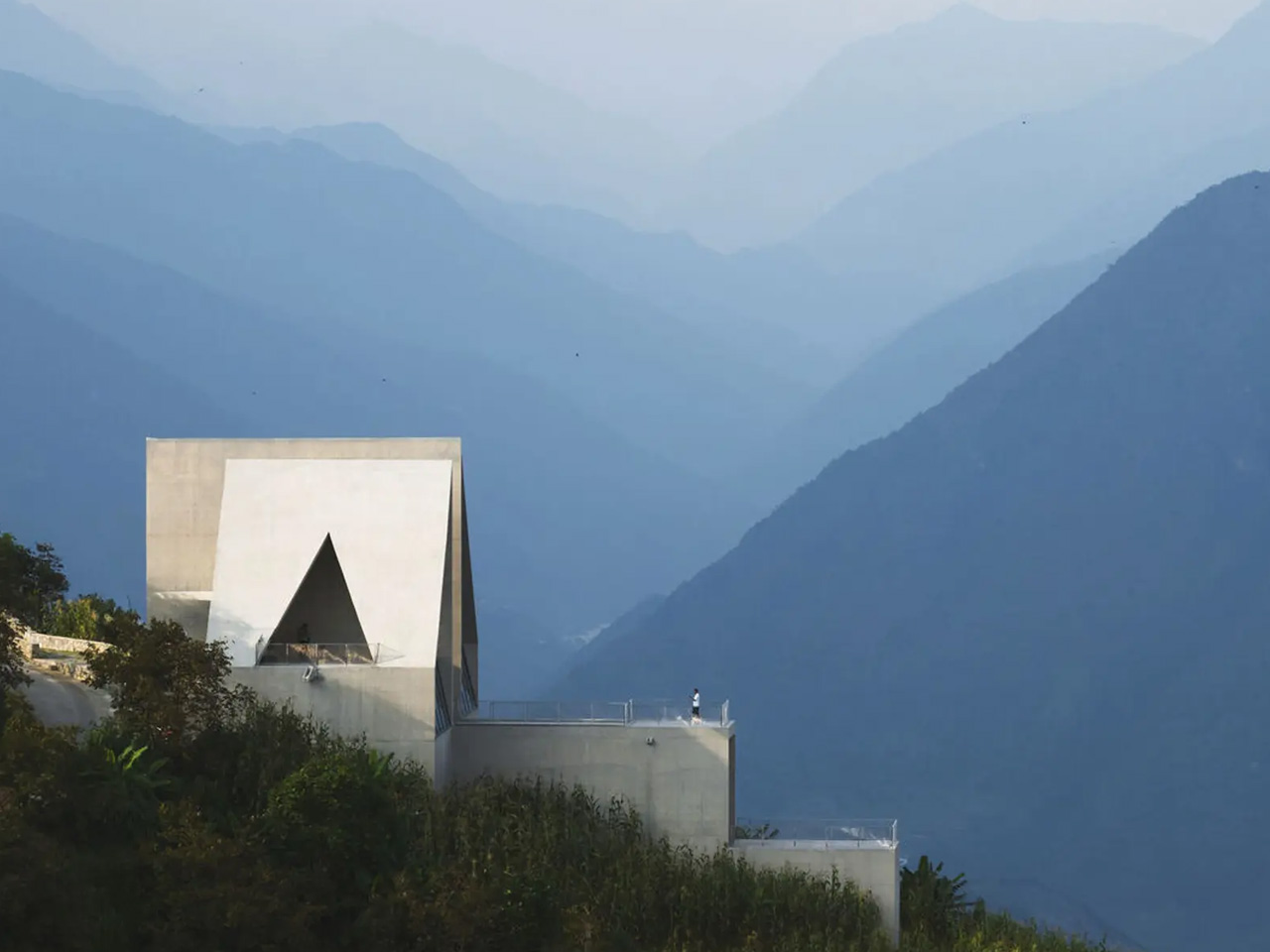
The impressive bookstore functions as a communal space, where residents and visitors are welcomed warmly. It is a cultural hub where visitors can visit the terraces and different communal areas. Various elements of traditional Lisu architecture were incorporated into the bookstore, such as the sloped roofline, which pays respect to the Lisu culture. The terraces form open and panoramic spaces that allow the building to merge with the natural landscape. This marks a seamless transition from constructed spaces to the natural landscape of the Nujiang Canyon.
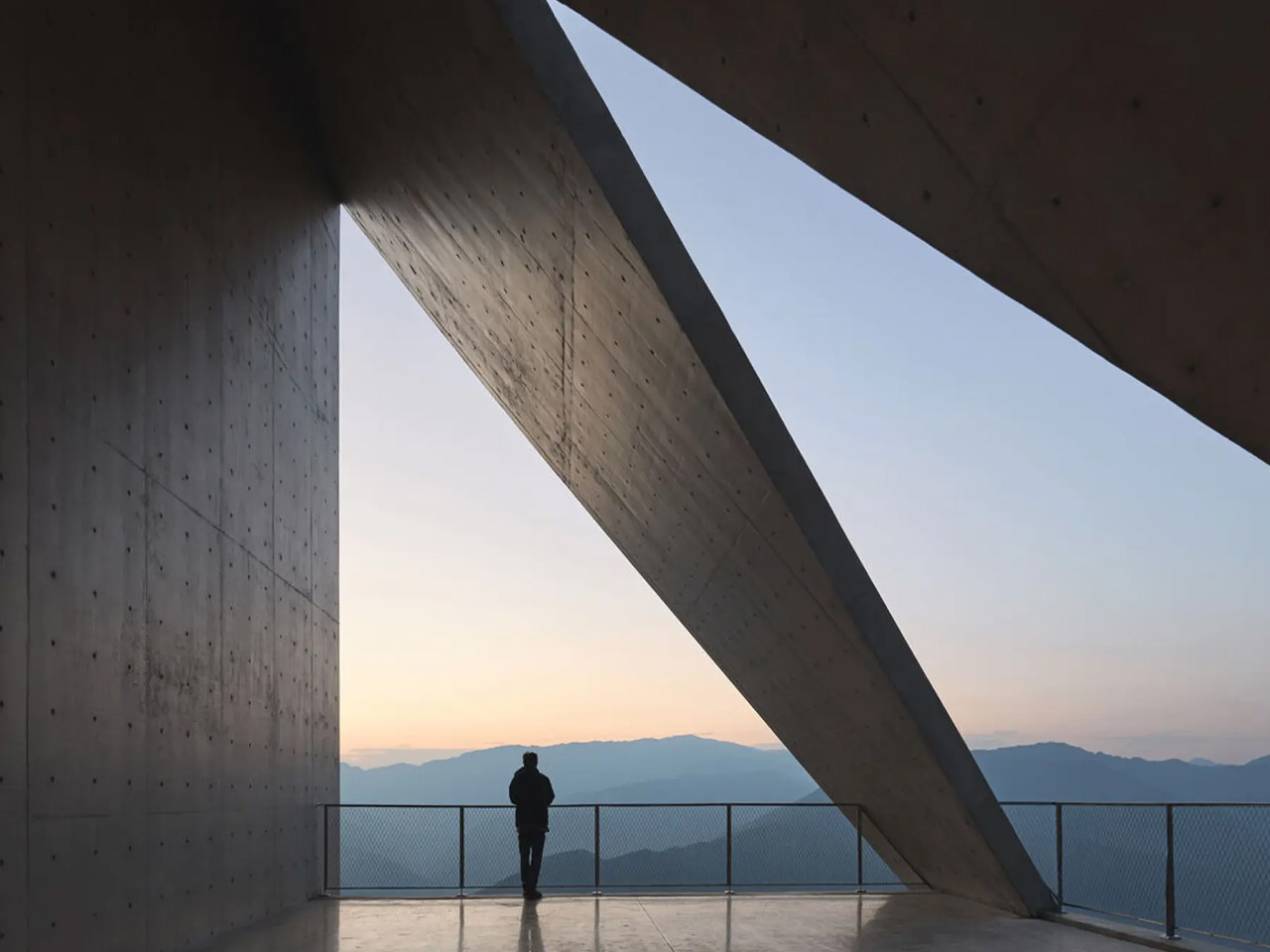
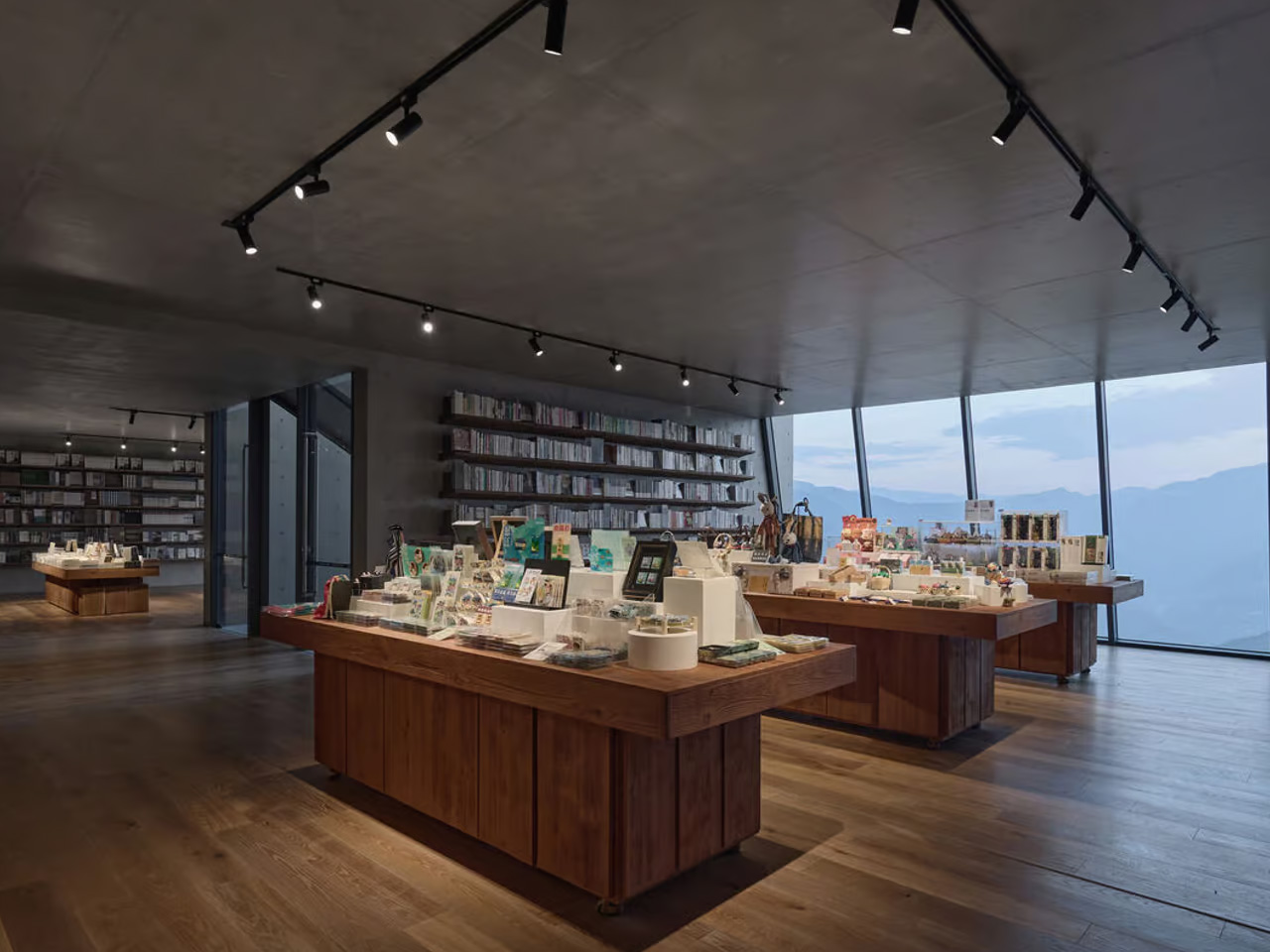
The main terrace is aligned with Yangpo Village’s road, which further instates the building as a communal extension. It allows the bookstore to serve as an architectural landmark and an important cultural hub. This thoughtful design allows public spaces to beautifully incorporate the local cultural heritage of a region.
